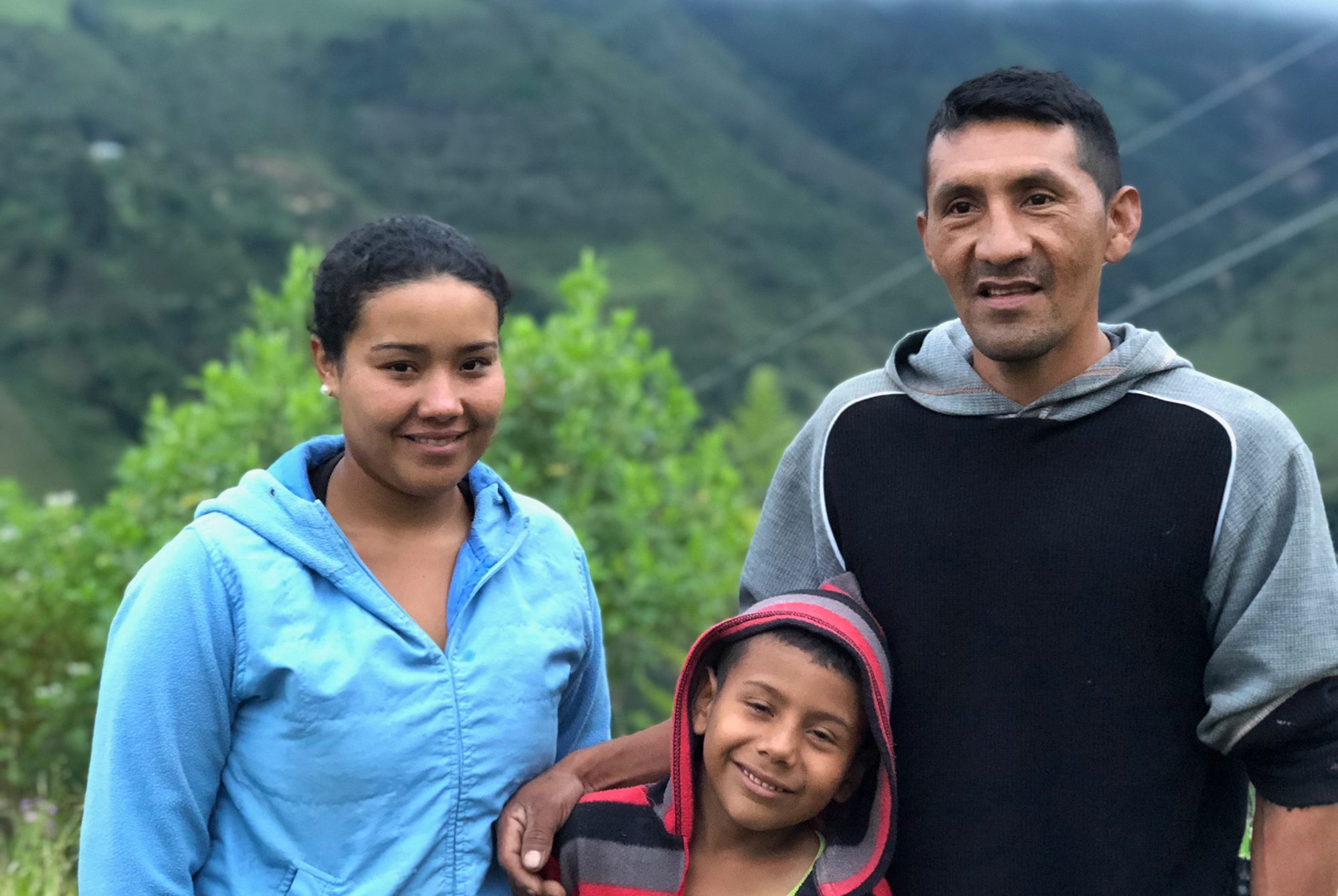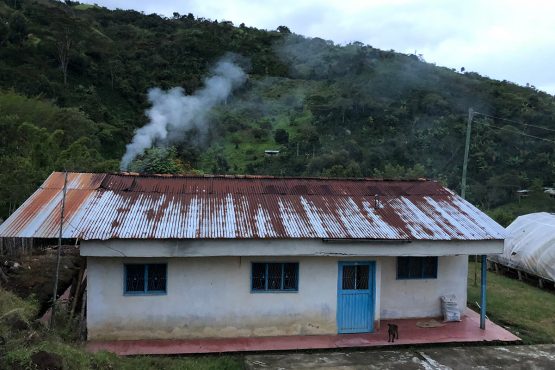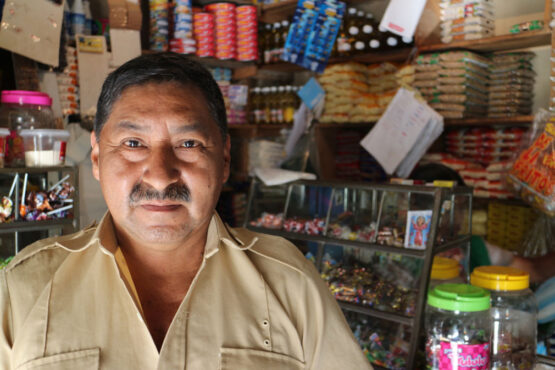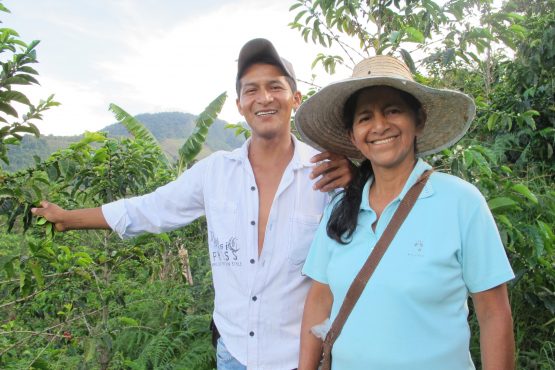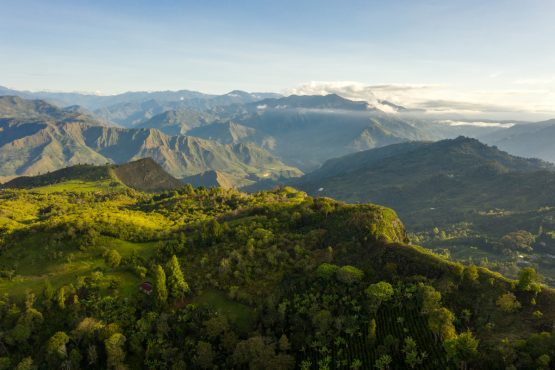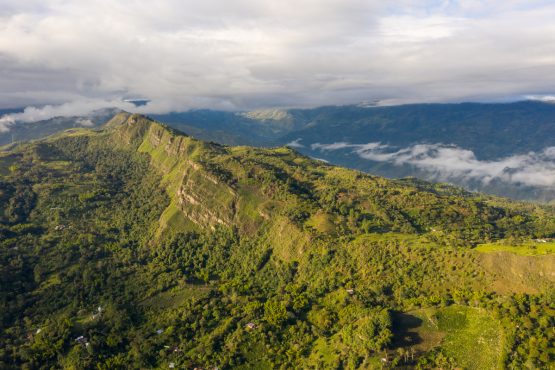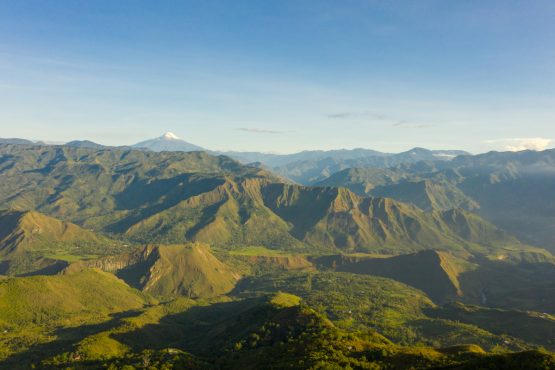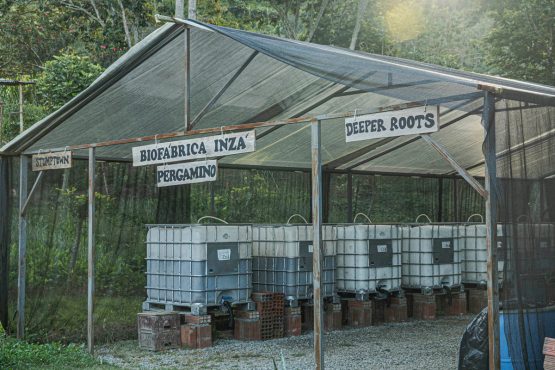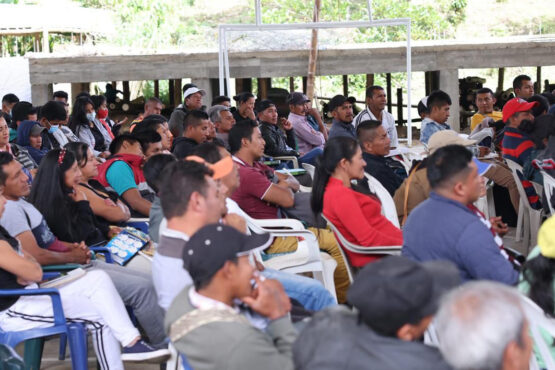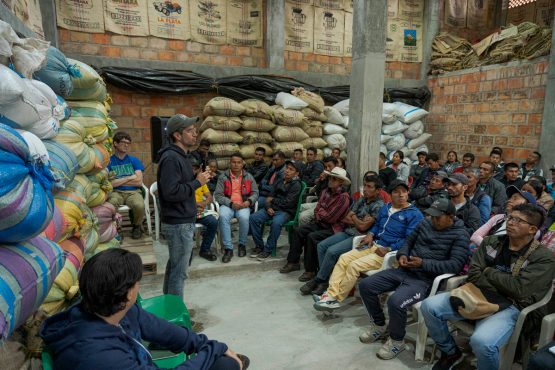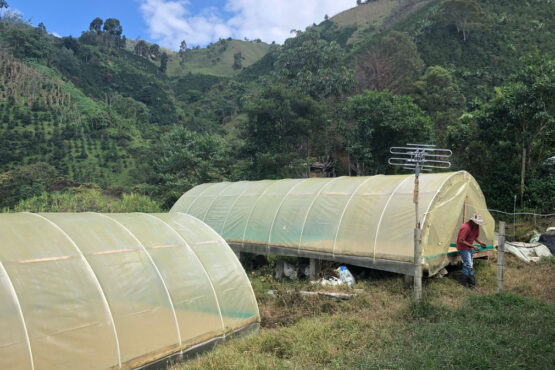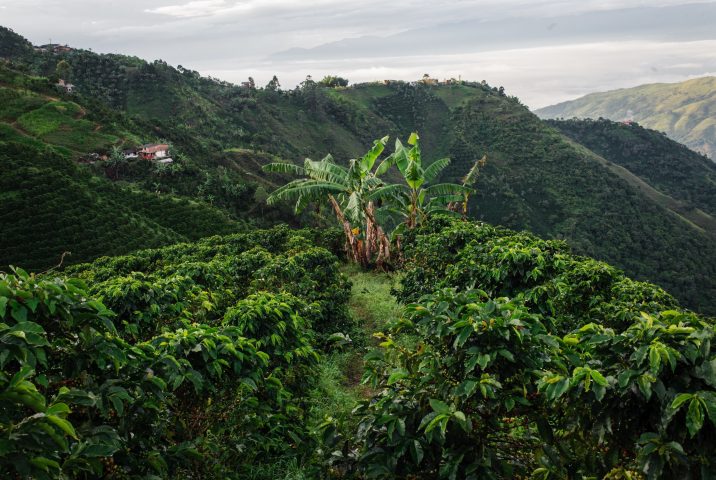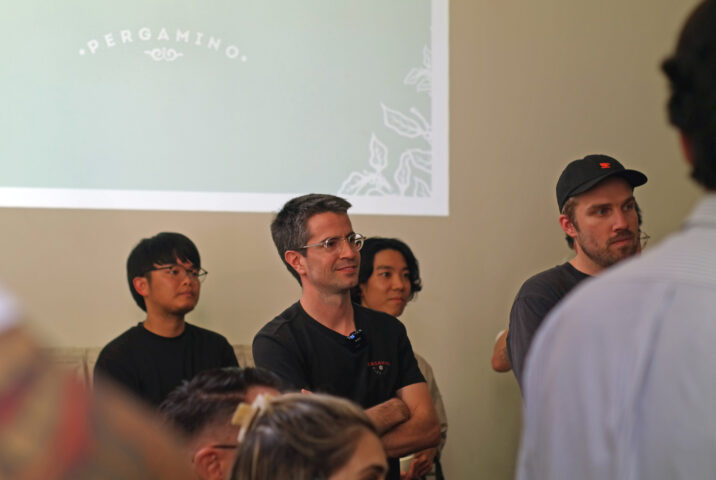El Cedro
Sweet and creamy, with vanilla, mandarin and milk chocolate. Well-structured and balanced.
This coffee was produced by Aníbal Pillimué (pictured above with wife Katerine Muños and son Cristian) on their small farm, El Cedro, located near the town of San Antonio, in the municipality of Inzá in the state of Cauca, in Colombia’s south.
El Cedro (meaning “the cedar tree” in Spanish) is a small farm, – just 1.5 hectares in size – located at 2010m above sea level, in the steep, rugged hills that surround San Antonio. Aníbal lives on the farm with his wife and two kids, and has been growing coffee here for over 10 years. In recent years, Aníbal has found greater financial stability and security by focusing on producing specialty-grade coffee and he now receives premium prices for his crop. This has encouraged him to start introducing new and rare varieties to his farm, which will only improve the quality of coffee he can produce.
Like most farms in the region, El Cedro is planted with the Caturra variety, which was the most popular variety during the 1970s and 1980s when most local farms were established. In recent years, Anibal has also introduced hybrid varietal Colombia, as part of the country’s efforts to reduce the incidence of coffee leaf rust without affecting cup quality. Aníbal farms his coffee with traditional techniques and most of the labour is provided by him and his family. Fertilisation occurs around three times a year, usually after manual weeding, and pesticides are rarely used. Alongside coffee, Aníbal also grows corn, yuca and plantain.
The town of San Antonio has breathtaking views of Colombia’s highest volcano, Nevado del Huila, which sits at the point where the states of Huila, Tolima and Cauca meet. The rich, volcanic soil of the area makes it ideal for agriculture and contributes to the excellent cup quality of coffees grown and processed here. Cool overnight temperatures result in dense beans, which are notable for their sweetness and complexity. Lower temperatures and high rainfall also influence processing techniques, with longer ferment and drying times being necessary.
ABOUT THE PILLIMUÉ FAMILY
María Rosa and husband Alfonso are the heads of the influential Pillimué family, who work hand in hand with our supply partners, Pergamino, as their local logistical operators in San Antonio. The family has a longstanding presence in the area, having farmed coffee here across three generations. They also keep the town’s general store and have built an adjacent warehouse and QC lab, which acts as a receiving point for over 200 local producers who deliver coffee to them.
The Pillimués are determined to make a difference among the region’s coffee producers by supporting the local industry now and into the future. María Rosa and Alfonso’s grandson, Neyid Pillimué Jr, has recently joined Pergamino’s team as a trainee cupper and lab assistant at the family’s warehouse, demonstrating the Pillimue’s investment in the next generation of producers and coffee operators.
During the harvest, local farmers deliver small lots (around 100-150kg) of dried parchment to the Pillimué family’s warehouse and lab every 2-3 weeks. Upon delivery, a sample of the dried parchment is milled and assessed for physical attributes, including uniformity of size, presence of defects, moisture content and seed to hull ratio. If the coffee passes the physical assessment, it is accepted and the farmer receives their first payment for the coffee, calculated by the weight delivered and a base rate related to the physical quality of the parchment.
Samples of the coffees are then cupped by a team trained by Pergamino and, if selected, sent weekly to Pergamino’s QC lab in Medellín where they are further assessed by an expert team of cuppers. Each lot is carefully evaluated and, based on the cup score and profile, the coffee is sorted into different grades of quality and combined into exportable sized lots. Feedback on each lot is relayed back to the producer and after it has sold, a second payment is made to them according to the premium the coffee attracted.
ABOUT INZÁ
The municipality of Inzá is located in the corner Cauca state, bordering with Tolima and Huila and looking out to the west over the Pacific Ocean. This region has excellent conditions for growing high-quality coffee, with high elevations and rich volcanic soil. The plateau has a very stable climate year-round thanks to its proximity to the equator and the surrounding mountains, which protect the coffee against the humidity of the Pacific Ocean and the trade winds from the south. This region is an important source of water and wildlife for Colombia, in addition to being prime coffee-growing land.
Inzá is the traditional home of the Nasa (or Páez) people, one of Colombia’s largest indigenous groups. During the Spanish invasion of Colombia, many of the Nasa were able to avoid bloodshed by escaping to the rugged hills and high plateaus of the Andes Mountains, where the Spaniards were unable to pursue them. Today, the Nasa economy relies on agriculture, and society is organised into tight knit farming communities who distribute duties equitably under the guidance of cabildos, or locally elected councils. Like many indigenous groups across Latin America, the Nasa have spent decades lobbying for the return of their land rights, finding success in recent years. Their struggle has led to legal recognition of the fundamental rights of indigenous peoples, including recognition of the autonomy of their communal indigenous lands in the 1991 Colombian Constitution.
Coffee from Cauca has historically been very difficult to access due to the region’s isolation and instability. For many years this part of Colombia was under the control of Colombia’s notorious rebel group, the FARC, and as a result, it was unsafe and violent. Since 2012, safe access to this region has been possible as a result of peace talks between the national government and the rebels. Thanks to these efforts, more and more stunning coffees from small producers in the region have become accessible to international buyers.
Our export partners for this coffee, Pergamino, have worked hard commercialise specialty-grade coffee throughout Cauca, and are now able to source some outstanding coffees from very dedicated producers. They work closely with the producers to give them feedback on their coffees (provided by Pergamino’s expert team of cuppers) and provide top up payments when the coffee is sold at a higher premium.
Head here to learn more about the work of Pergamino.
HOW THIS COFFEE WAS PROCESSED
The coffee in this lot was selectively hand-harvested, with most labour being provided by Aníbal and his family. It was processed using the washed method at the farm’s ‘micro-beneficio’ (mill).
The coffee was pulped using a small manual or electric pulper and then placed into a fermentation tank, where it was fermented for around 48 hours (depending on the weather and the farm’s location) and then washed using clean water from nearby rivers and streams.
The coffee was then carefully dried (over 10–18 days) on parabolic beds, which are constructed a bit like a ‘hoop house’ greenhouse, and act to protect the coffee from the rain and prevent condensation dripping back onto the drying beans. The greenhouses are constructed out of plastic sheets and have adjustable walls to help with airflow, and temperature control to ensure the coffee can dry slowly and evenly.
Once dry, the coffee was delivered to Pergamino’s warehouse in Medellín, where it was cupped and graded. Once approved, coffee rested in parchment until it was ready for export.
